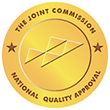 Addiction destroys families as much as it destroys the life of the individual. Loving someone who has an addiction can be both heartbreaking and exhausting. Family members often suffer just as much mentally, emotionally and physically as the person with the addiction. Families are usually torn between how to help their loved one and how to avoid being lured into their world. While there are an abundance of articles on the disease of addiction, family members often have a difficult time understanding the cause of addiction. Some believe if the person loves them enough they will just quit drinking or stop using drugs. These beliefs usually lead to feelings of anger, resentment, hurt, guilt, shame, or disgust. Learning about addiction in a structured treatment program is critical in changing the dysfunction in the family system.
Addiction destroys families as much as it destroys the life of the individual. Loving someone who has an addiction can be both heartbreaking and exhausting. Family members often suffer just as much mentally, emotionally and physically as the person with the addiction. Families are usually torn between how to help their loved one and how to avoid being lured into their world. While there are an abundance of articles on the disease of addiction, family members often have a difficult time understanding the cause of addiction. Some believe if the person loves them enough they will just quit drinking or stop using drugs. These beliefs usually lead to feelings of anger, resentment, hurt, guilt, shame, or disgust. Learning about addiction in a structured treatment program is critical in changing the dysfunction in the family system.
Addiction – The Family Disease
There is a reason addiction is referred to as a ‘Family Disease’ – one family members substance abuse or addiction affects the entire family system. Often, it is common for family members to develop feelings of anxiety, depression or hopelessness when living in constant fear of something happening to the person they love. They forget to take care of themselves and develop patterns of co-dependency to cope with the unpredictable actions of the addicted family member. Family roles often become more apparent when substance abuse or addiction is present in the family system. The family members consciously, and unconsciously, take on specific stereotypes classified as: the addict, the hero, the mascot, the martyr, scapegoat, lost child, caretaker (enabler) and the fixer.
In family systems dealing with the disease of addition, it is not uncommon for the youngest members to begin taking on characteristics of the addicted individual. These characteristics include moodiness, anger issues or acting out in the home or at school. Unfortunately, it is also linked to early adolescent substance abuse problems. A survey from the Department of Children and Families cites substance use in teens is on the rise over the last few years with North Florida having higher rates then all other areas in Florida.
In a News4Jax investigation on ‘Teen Drug Use,’ (https://www.news4jax.com/news/florida/duval-county/news4jax-investigates-teen-drug-use) Special Agent Chad Cook of the Drug Enforcement Administration reported the DEA is working with both schools and the police in Duval, St. Johns and Clay counties to cut down on children and teens obtaining and abusing drugs. This investigation also revealed that most often the drugs or alcohol are received from ‘friends.’ According to Special Agent Cook, “they have pill swapping parties – they are able to get pills from a medicine cabinet from their grandmother’s house, mom and dad, or other family members.” According to the Substance Abuse and Mental Health Services Administration (www.samhsa.gov/), examining substance abuse and addiction disorders through the dynamics of the whole family has several advantages. Family involvement in treatment is associated with better long-term outcomes and can help reduce the impact and recurrence of addictions in further generations.
How Recovery Keys Supports Families
Most treatment programs put the focus on the individual with the disease of addiction, which is important, but they spend less time and focus on family treatment. The staff at Recovery Keys, located in Jacksonville, Florida and St. Augustine, Florida understands how traumatic it can be loving someone who has a substance abuse problem. We have created an intensive family-oriented program that goes hand-in-hand with the person in treatment. Family support is a critical component of recovery.
Our patients have weekly and/or bi-weekly family therapy led by our licensed marriage and family therapist. Recovery Keys also offers a 6-week Family Support Group that meets in the evenings. Emphasis is placed on the family stages of recovery, the adjustment to abstinence, changes in the family dynamic, and how the family system shifts from an unhealthy rigid organization to a more flexible, open system that has learned new ways of responding to situations. This has shown to improve the families’ quality of living. The staff here believes that by integrating intense family therapy into the treatment program, families can start the process of healing, start rebuilding trust, set healthy boundaries, and understand each other’s needs while on the road to recovery.


















